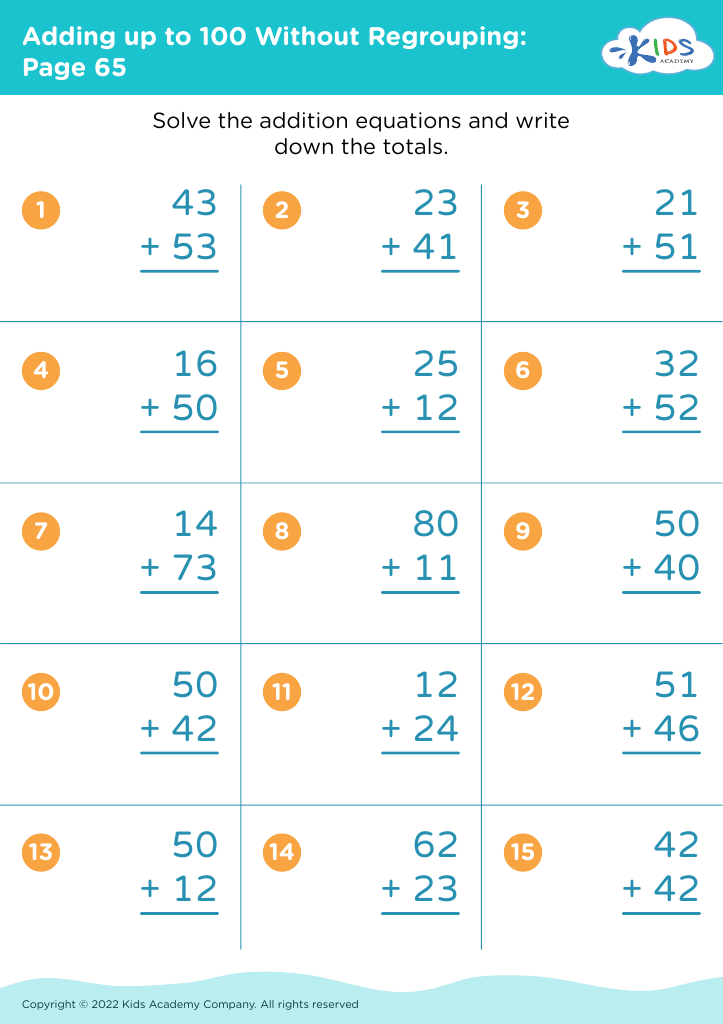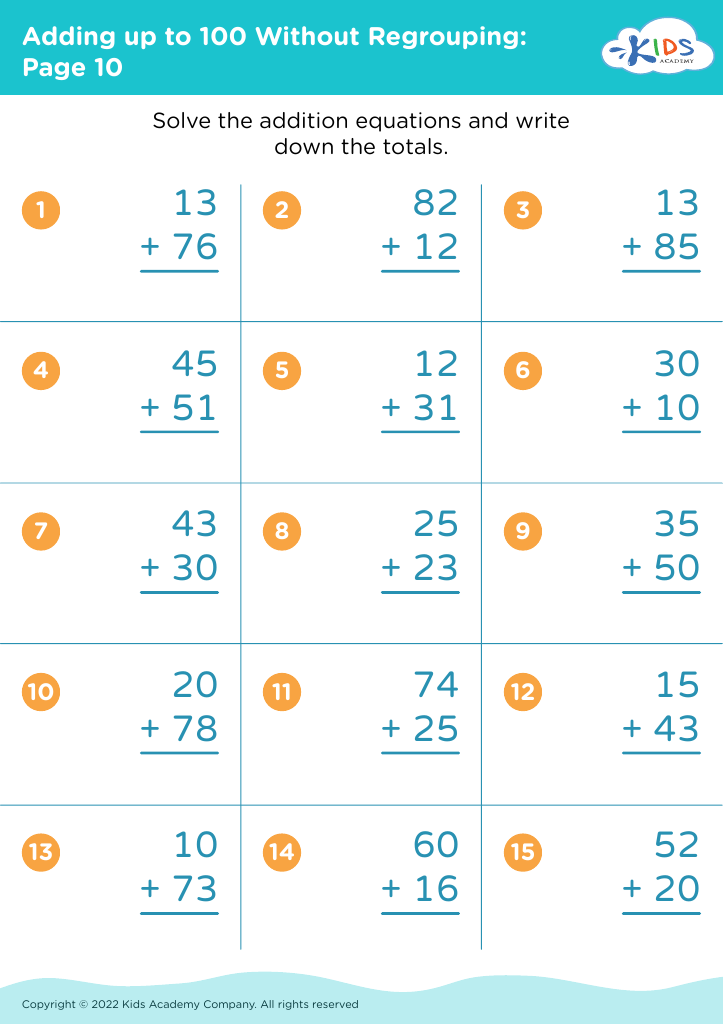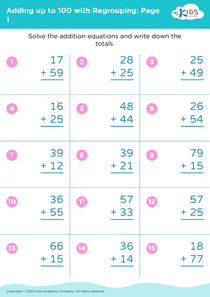Basic Math Skills Adding up to 100 Without Regrouping Worksheets for Ages 6-7
4 filtered results
-
From - To
Introduce young learners to essential math concepts with our "Basic Math Skills: Adding up to 100 Without Regrouping Worksheets for Ages 6-7." Designed to help children practice addition up to 100, these engaging worksheets focus on enhancing confidence in basic math operations without the need to regroup. Providing colorful, fun, and easy-to-follow exercises, each worksheet aids in reinforcing comprehension and accuracy. Perfect for classroom activities or at-home study, these resources are a valuable tool for educators and parents aiming to develop a strong numerical foundation for their kids. Unlock the path to math success with our trusty and educational worksheets!
Parents and teachers should prioritize basic math skills, such as adding up to 100 without regrouping, for 6- to 7-year-olds because foundational arithmetic is crucial for future academic success. Developing proficiency in elementary addition sets the stage for more complex mathematical concepts. When children effortlessly manage addition within this range, their confidence grows, encouraging a positive attitude towards math.
Learning to add without regrouping also enhances cognitive skills such as memory, logical thinking, and attention to detail. These abilities are transferable to other subjects and daily problem-solving activities, promoting overall intellectual growth. Similarly, math is essential in everyday life. Whether predicting time, budgeting pocket money, or understanding sports scores, children use these basic skills regularly.
Engaging with these concepts solidifies a child's number sense and understanding of place value, which are key elements as they progress to more advanced computations. Furthermore, fostering these skills early on can close learning gaps, ensuring that all students, regardless of background, have equal opportunities to succeed.
In summary, mastery of basic arithmetic operations at a young age builds a solid foundation for future learning, supports cognitive development, and prepares children for real-life applications, making it a fundamental educational goal for parents and teachers alike.

















